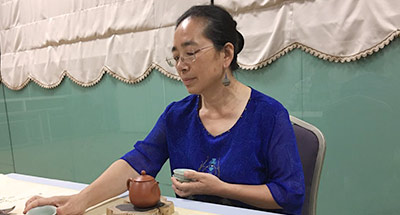
Hong Jiang
Associate Professor
Office: Saunders 437
Email: hjiang@hawaii.edu
Browse My Publications:

CSS Excellence in Teaching Award (2016)
Background
I have benefited from the broad training of the geography discipline. I received an integrative geography BS and specialized in biogeography for a MS at Beijing Normal University, worked in a physical geography unit at the Chinese Academy of Sciences, studied human-environment geography for a MA and PhD at Clark University while working as a GIS specialist (for IDRISI). My research as a faculty has traversed from human-environment geography to cultural geography. My current research and teaching interests involve culture, nature, and China. I came from China, and aspire to the Confucian view of education as a means to refine oneself as a whole person. From this perspective, I will remain a student, and it is in this sense of humility and purpose that I meet my students in classes.
Education
- PhD, Geography, Clark University, 1997
- MA, Geography, Clark University, 1994
- MS, Geography, Beijing Normal University, China, 1988
- BS, Geography, Beijing Normal University, China, 1985
Courses
- GEO 330: Culture and Environment
- GEO 353: Geography of China
- GEO 432: Cultural Geographies of Tea
- GEO 757: Research Seminar: Cultural Geography
Research
I call myself a cultural geographer and a China specialist. My research has traveled the trajectory from human-environment geography (1994-1999), to GIS (1999-2001), to cultural-political ecology (2001-2013), and now to cultural geography (since 2014). All this time, my regional focus on China has remained. My current research project explores “ideas of nature in Chinese thought,” a component of which is “tea and Chinese culture.” Against the background of the modern western tendency to separate nature and culture, the Chinese traditional culture offers ways to consider nature-culture unity. How has the unity been conceived and expressed throughout Chinese history in philosophy, art (painting and poetry), language, and cultural practices (such as urban design, gardens, Fengshui, and tea)? This research project requires a lifetime of learning, to which I am committed.
